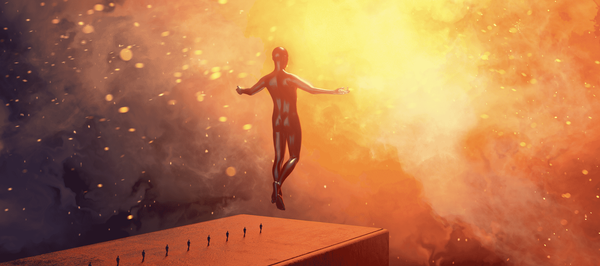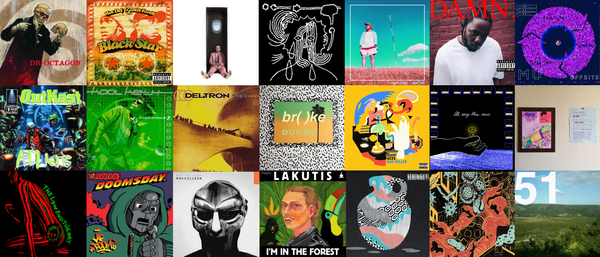Sathyvelu Kunashegaran • • 6 min read
10 Things Nobody Told You About Being Creative
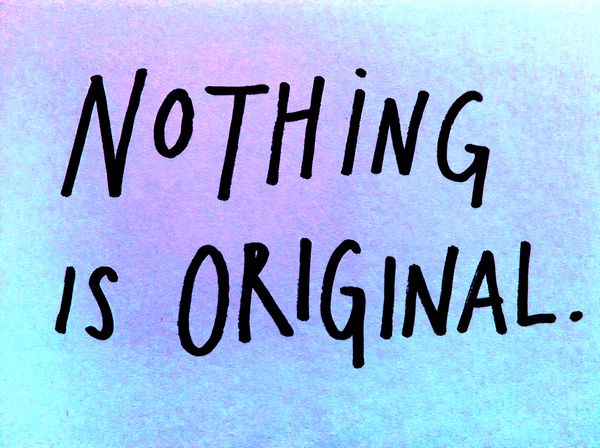
Steal Like An Artist : 10 Things Nobody Told You about Being Creative by Austin Kleon is a quick read that gives excellent instructions, healthy encouragement and real advice to any budding artist (i.e. creative types) while maintaining a good balance of quirkiness and humor.
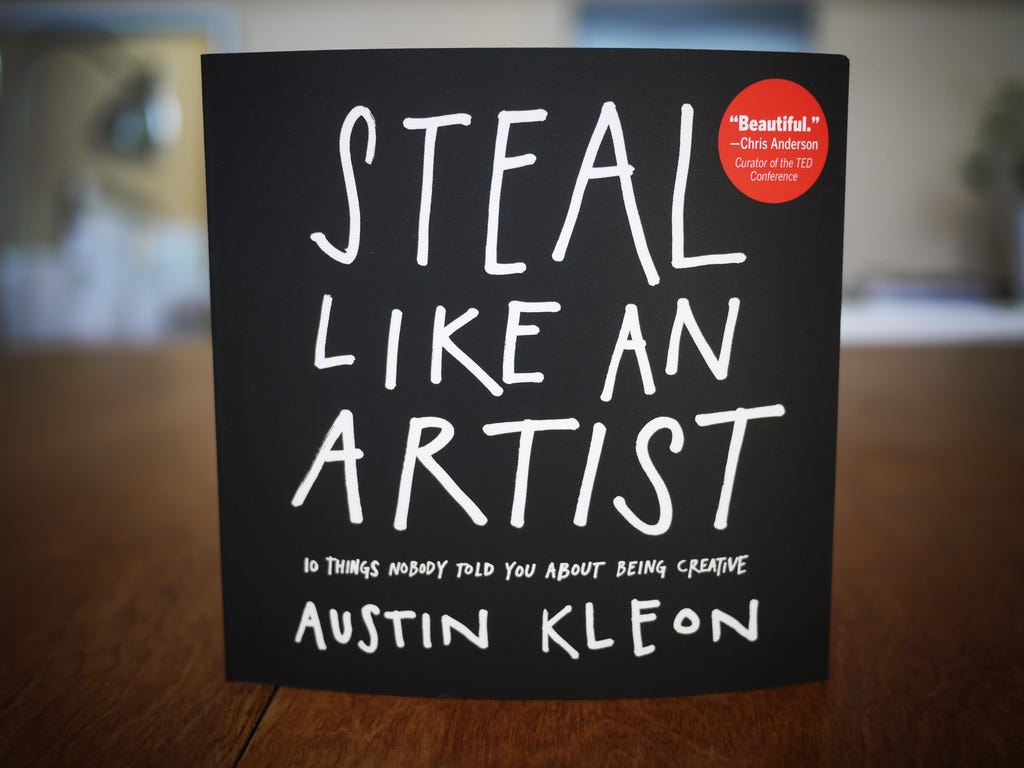
10 Things Nobody Told You About Being Creative
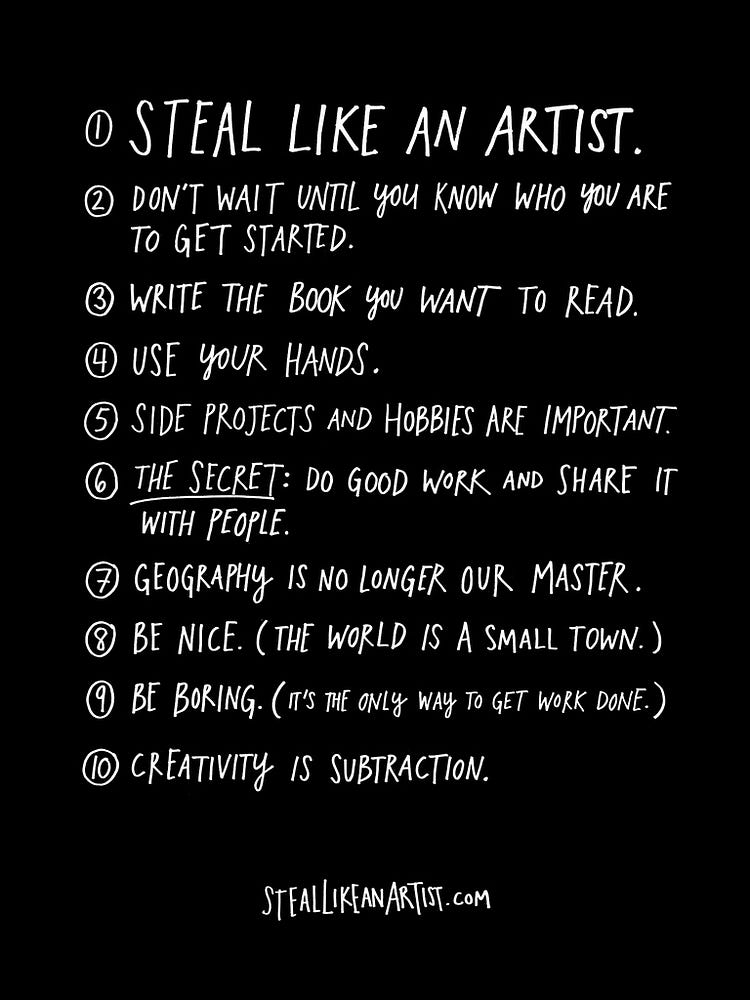
1. Steal like an artist
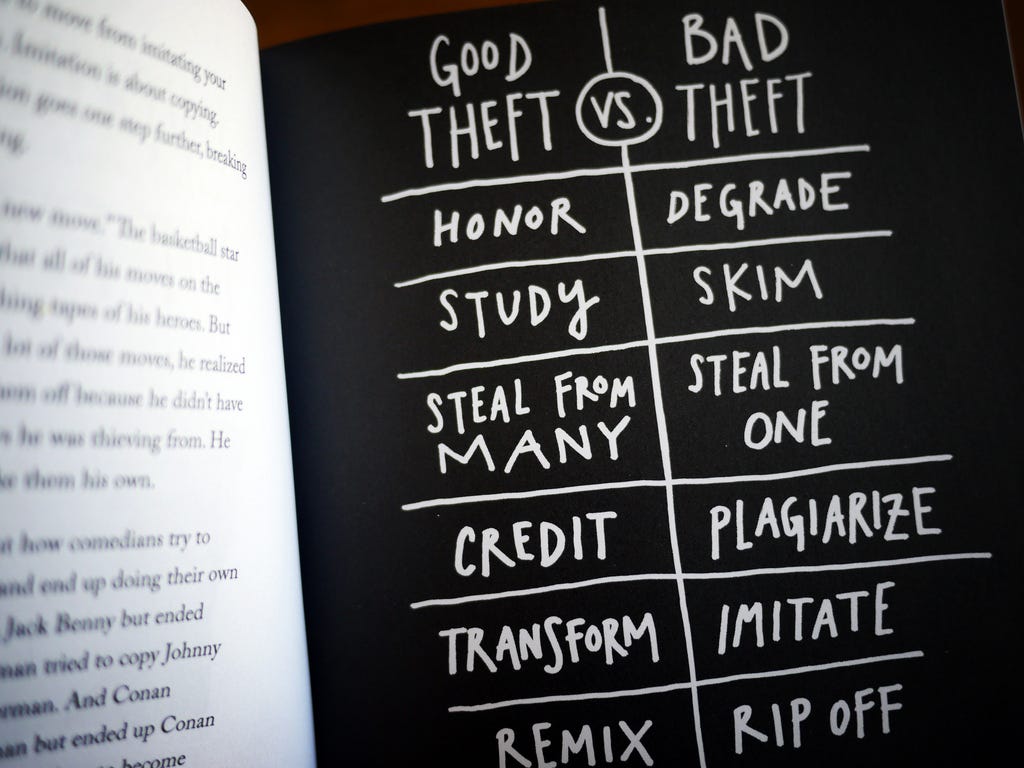
Immature poets imitate; mature poets steal; bad poets deface what they take, and good poets make it into something better, or at least something different.
Austin argues that creative work builds on what came before, and thus nothing is entirely original. He advises us to look at the things this world has as either worth stealing or not worth stealing. Steal the things that will help make you (or your business) stand out. The author adds that he does not mean ‘steal’ as in degrade, skim, imitate or rip off — but the study, honor, remix, transform, and credit.
You are, in fact, a mashup of what you choose to let into your life.
2. Don’t wait until you know who you are to get started
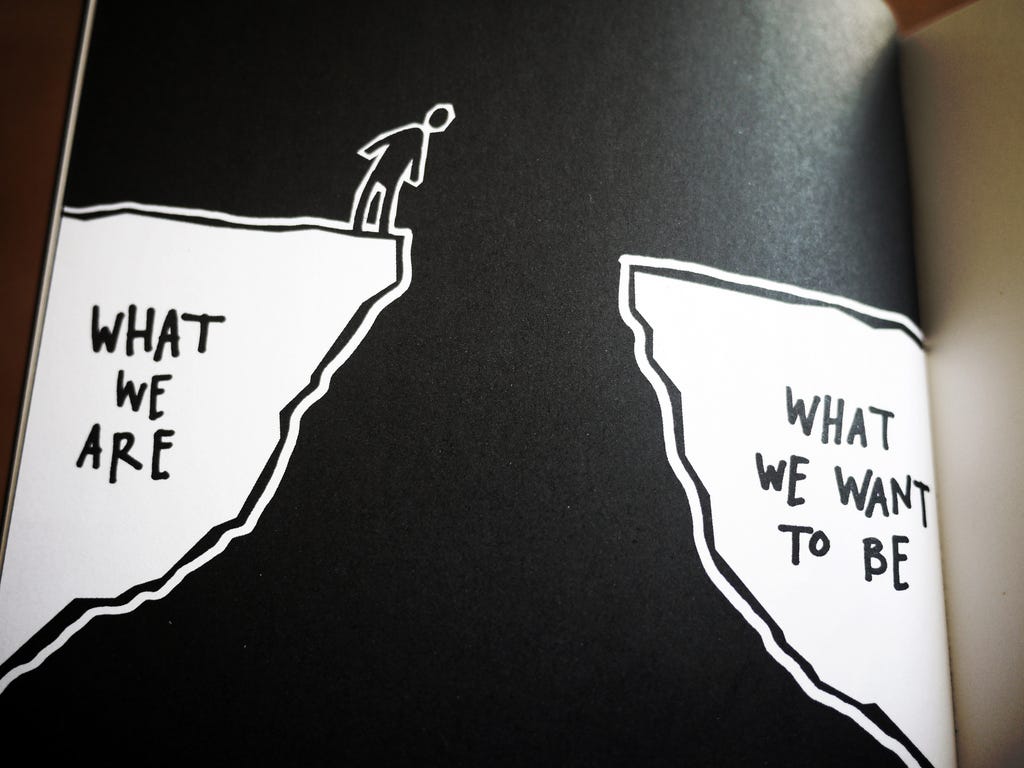
Don’t just steal the style, steal the thinking behind the style. You don’t want to look like your heroes; you want to see like your heroes. The reason to copy your heroes and their style is so that you might somehow get a glimpse into their minds. That’s what you want — to internalize their way of looking at the world. If you just mimic the surface of somebody’s work without understanding where they are coming from, your work will never be anything more than a knockoff.
In a world that is changing every day, it is too hard to find out who we are before we start taking action. So, Austin urges us just to go with it until we figure it out.
You have to start doing the work you want to be doing by copying your heroes; then, go beyond imitation to emulation and finally, you will end up with your own version of the thing you want to be doing.
Start copying what you love. Copy, copy, copy, copy. At the end of the copy, you will find yourself.
3. Write the book you want to read
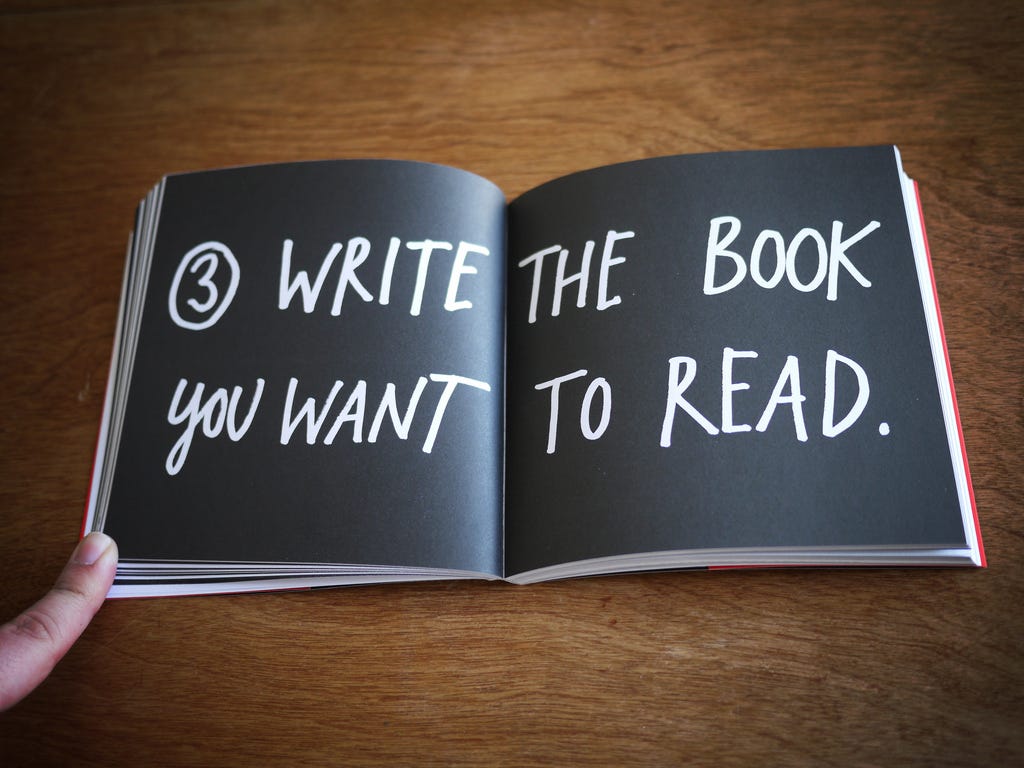
Draw the art you want to see, start the business you want to run, play the music you want to hear, write the books you want to read, build the products you want to use — do the work you want to see done.
It’s important to create things that you will use instead of something for someone else. Austin claims that if you do that, even in the worst case scenario you will have one customer — yourself.
4. Use your hands
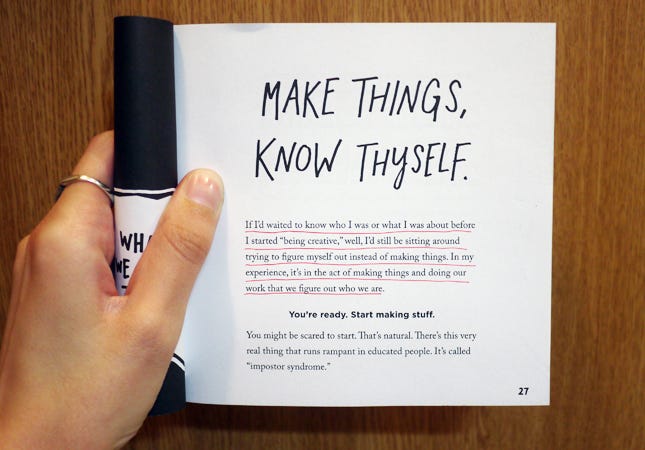
Kleon reminds us that creativity peaks when we involve all of our senses. Hence, it’s important to deviate away from the computer screen and to immerse oneself in actual physical work, to help kick-start our brains into action e.g. play guitar, cook or bake, etc.
Computers have robbed us of the feeling that we’re actually making things.
5. Side projects and hobbies are important
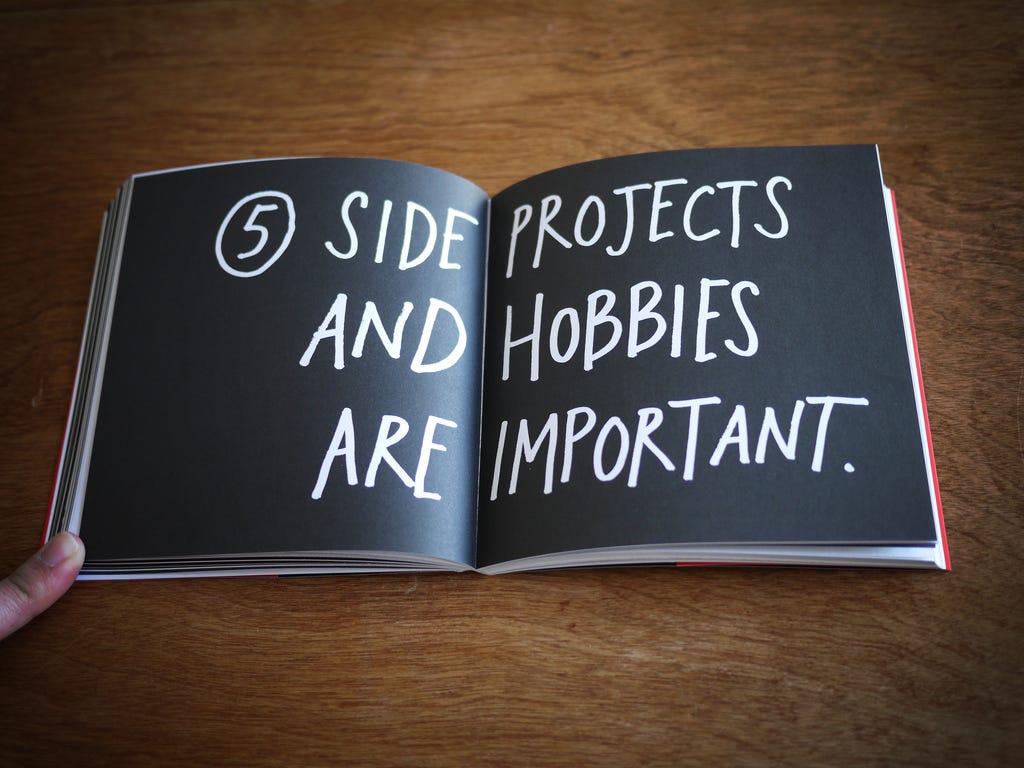
One thing I’ve learned in my brief career: It’s the side projects that really take off. By side projects, I mean the stuff that you thought was just messing around. Stuff that’s just play. That’s the good stuff. That’s when the magic happens.
By keeping your passions alive through side projects and hobbies, you become more creative in your actual work that pays. You don’t need to make money with everything you do.
A hobby is something that gives but doesn’t take.
6. Share your work with people
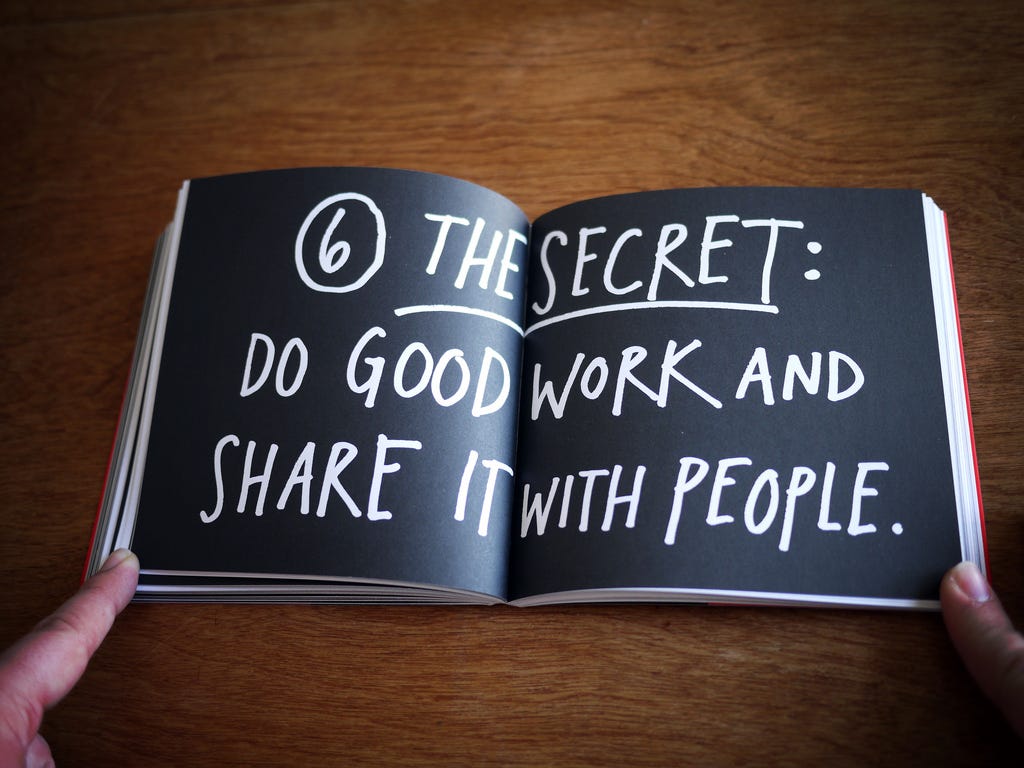
Sharing your work and even your thoughts about what you like help you get good feedback and more ideas.
The secret: Do good work and share it with people.
7. Geography is no longer our master

Your brain gets too comfortable in your everyday surroundings. You need to make it uncomfortable. You need to spend some time in another land, among people that do things differently than you. Travel makes the world look new, and when the world looks new, our brains work harder.
Distance and difference are the secret tonics of creativity.
8. Be nice
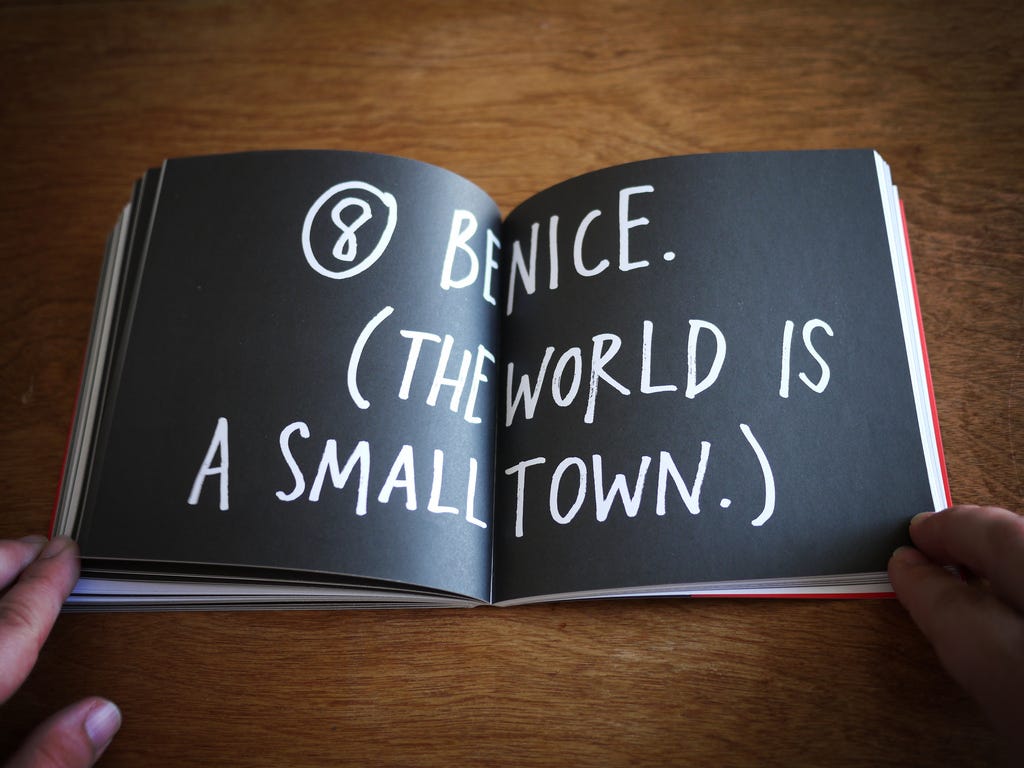
Life’s a marathon, not a sprint. Stop fighting and competing. Channel your rage into a creative pursuit. Make friends, ignore enemies. Show appreciation for the good things you see around you. Be grateful.
There’s only one rule I know of: You’ve got to be kind.
9. Be boring
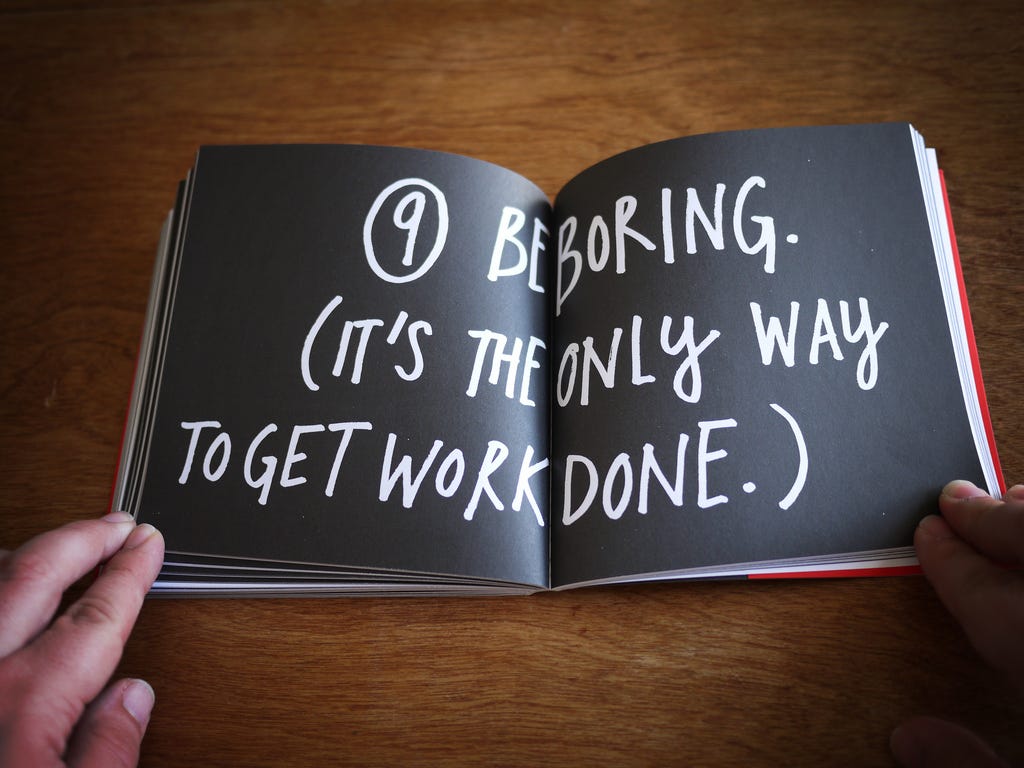
Routines (i.e., being boring) are important to make sure you are using your valuable brain cells and scarce creative capacity on the tasks that matter.
Establishing and keeping a routine can be even more important than having a lot of time.
10. Creativity is subtraction
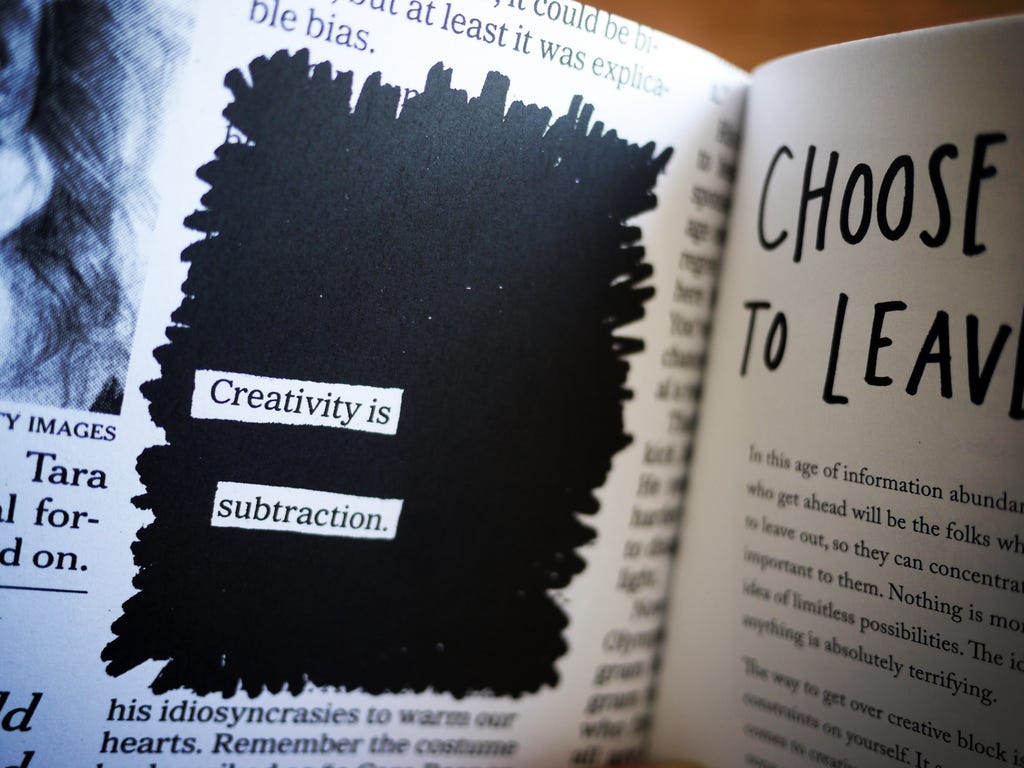
Nothing is more paralyzing than the idea of limitless possibilities. The best way to get over creative block is to simply place some constraints on yourself.
In this age of information abundance and overload, those who get ahead will be the folks who figure out what to leave out, so they can concentrate on what’s really important to them. A good example of subtracting to create awesomeness is Dr. Seuss, who wrote his bestselling book with only 50 different words. Saul Steinberg says a work of art represents a struggle against limitations.
“Creativity isn’t just the things we choose to put in, it’s the things we choose to leave out,”
Bonus: 10 Things About Being Creative Summary
Life habits recommended by this book
- Always be reading. Go to the library. There’s magic in being surrounded by books. Collect books, even if you don’t plan on reading them right away.
- Keep a scrapbook or ‘swipe file’ to jot down notes about your observations. Search the things that relate to your observation and then, research to produce your own view on it.
- Using computers in the ideation stage may actually turn you into ‘edit mode’ even before the idea has been fully explored. Instead, try having a digital desk and an analog desk.
- How to research: Find one thinker, artist, or artist who you admire and research everything about him/her. Then, find a few people that influenced him/her. Now, find out everything about these influencers. Keep going up till you build your own tree. Now, you are ready to start your own branch.
- If you have two or three real passions, don’t feel like you have to pick and choose between them. Don’t discard. Keep all your passions in your life. You can cut off a few passions and focus only on one, but after a while, you’ll start to feel phantom limb pain.
- Keep your day job until you are making as much as through your side project. A day job gives you money, a connection to the world, and a routine. Freedom from financial stress also means freedom in your art. The trick is to find a day job that pays decently, doesn’t make you want to vomit, and leaves you with enough energy to make things in your spare time.
- Keep a praise file (positive feedback) and a rejection file (negative feedback). The praise file will help you when the rejection file gets too thick!
- Learn about money management.
- Get a wall calendar which shows you the full year ahead so that you get a good sense of what’s coming. Keep it updated.
- Google everything. Enough said.
Tweet These Quotes.
Art is theft.
The only art I’ll every study is the stuff that I can steal from.
Complain about the way other people make software by making software.
In the digital age, don’t forget to use your digits!
Avoiding work is the way to focus the mind.
Every idea is a juxtaposition of existing concepts.
If you ever find that you’re the most talented person in the room, you need to find another room.
It is our failure to become our perceived ideal that ultimately defines us and makes us unique.
You’re only as good as the stuff you surround yourself with.
Nothing is more important than an unread library.

